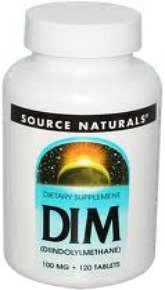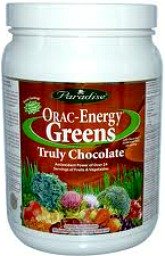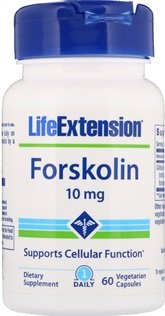Stress Hormones and Heart Disease: Increase Progesterone and decrease Cortisol
There are several ways to increase progesterone, one of which is to decrease stress hormones such as cortisol, ACTH and CRH. However, we can also directly improve progesterone production.
Progesterone is made from pregnenolone, the mother of all hormones, while pregnenolone is made from cholesterol. Cortisol is indirectly made from progesterone or more precisely from its metabolite, known as 17-OH progesterone.
This makes progesterone an essential precursor to mineralocorticoids such as aldosterone and glucocorticoids such as cortisol.
When you are exposed to stress, the body increases secretion of cortisol and adrenaline. When this happens, progesterone decreases since it is used to produce cortisol. This makes it important to control stress response, in order to increase progesterone levels.
PROGESTERONE AND HEART DISEASE
Progesterone is vital hormone for the immune system, bone strength, healthy nervous system and heart function. Although, there are several studies with progesterone and estrogen and their benefits for preventing heart disease, few new studies have concluded that mainly progesterone is responsible for this beneficial effect.
It seems that progesterone may even have an effect on size of the cardiac muscle, not just on stress hormones and heart disease.
On the other hand, this powerful hormone regulates cardiac repolarization. Cardiac repolarization is important part of your natural heart pacemaker rhythm which regulates contractions of the heart muscle and speed of the heart beat. However, having too low or too high progesterone may lead to arrhythmia.
MENOPAUSE, PREGNANCY AND PROGESTERONE
Some women experience irregular heart beats, during their menstrual cycle. The body tends to increase progesterone and estrogen which makes it difficult to balance out these two.
On the other hand, risk of stroke, heart attack, high blood pressure and heart disease is much higher in post-menopausal women, when progesterone production drops to near zero.
One study monitor women that have been pregnant four or more times. They found out these women had much lower risk of stroke and heart disease as opposed to women that didn't give birth or were pregnant only once. Scientists are not sure what causes this fenomenon but they assume hormones may have something to do with it.
I personally believe that hormones are most likely responsible for this fenomenon, more accurately progesterone. During pregnancy, placenta produces mega doses of progesterone since it is necessary for the mother and especially for the fetus.
COLLAGEN, BLOOD PRESSURE AND CHOLESTEROL
Progesterone can lower blood pressure by "opening" the blood vessels since it counteracts angiotensin 2 which is the natural substance in the body that constricts blood vessels. It also lowers blood pressure, by blocking the calcium from entering into the cells which also relaxes and expands blood vessels.
It can even lower cholesterol and triglycerides, by normalizing use of fat stores for energy. So, if we increase progesterone within normal limits, we can reduce the risk of atherosclerosis and heart attack.
Progesterone also regulates collagen synthesis in the body. Collagen is the glue that holds us together which helps repair microfractures in the tissue, during sleep.
CORTISOL vs PROGESTERONE
Cortisol is a complete opposite of progesterone. Elevated levels of cortisol may lead to osteoporosis, weight gain, adrenal fatigue, high blood pressure, faster heart rate, diabetes, hypercortisolism, insomnia, reduced collagen synthesis, weaker immune system and it may even damage the heart muscle and blood vessels.
On the other hand, acute stress and certain amount of cortisol is beneficial. Cortisol has a role in fight or flight reaction, homeostasis and it possesses anti-inflammatory properties. So, not only that we need to increase progesterone but we also have to balance out these two.
STRESS HORMONES AND HEART DISEASE - CRH, ACTH AND CORTISOL CONTROL
Hypothalamus, the master endocrine gland, is linked to our nervous system. When we are exposed to any kind of stress, we experience nervous reaction which signals the hypothalamus to produce CRH or corticotropin releasing hormone.
CRH signals the pituitary gland to produce ACTH, also known as adrenocorticotropic hormone. ACTH signals the adrenal glands to produce cortisol and adrenaline.
If long-term chronic stress is causing this, overactive hypothalamus-pituitary-adrenal axis may deplete progesterone and lead to adrenal burnout.
STRESS AND LIMBIC SYSTEM CONNECTION
Hypothalamus and nervous system are connected via the limbic system. The limbic system consists of several parts which play a role in fight or flight response as well as heart rate and blood pressure.
The most important part of the limbic system is amygdala. Amygdala is responsible for processing short term memory and emotional reactions, triggered by stressful situations. Basically, it controls fight or flight response which affects cortisol levels.
In order to increase progesterone and lower CRH, ACTH and eventually cortisol, you have to start from the source which is the limbic system or more precisely, amygdala. By strengthening amygdala as well as limbic, nervous and endocrine system, you will lower CRH, ACTH and cortisol.
The body will also become more efficient at establishing homeostasis. By reducing cortisol, more progesterone will be left circulating in the blood which will help improve function of the cardiovascular system.
CONCLUSION
Meditation and other relaxing techniques can help manage stress hormones and heart disease related problems, by reducing cortisol which can increase progesterone.
Ashwagandha and Rhodiola are two most effective adaptogens for improving hypothalamus and pituitary gland function. On the other hand, Bupleurum and Rehmannia are also able to boost secretion of progesterone, by improving the function of adrenal glands.
Relaxing herbs such as Kava Kava, Peony and Passion Flower can help calm the nervous system, while lowering cortisol. There are also some herbs such as Vitex, Coleus Forskohlii and Maca which can directly increase progesterone production.
On the other hand, long distance running such as marathon increases cortisol and lowers progesterone, in a similar way as chronic stress does. This is one of the reasons why long distance runners often get sick after the race.
- Heart Healthy Diet: Simple Tips and Guidelines
- Learn everything you need to know about heart healthy diet and find the right one for you. Implement few simple tips for immediate benefits.
- Heart Healthy Foods: How to Get the Most from Them
- Heart healthy foods can improve cardiovascular system function. Foods good for the heart are bursting with vitamins, minerals and rejuvenating phytochemicals.
- Herbs for the Heart and Cardiovascular System
- You have heard for hawthorn and garlic but there are few other herbs for the heart which can help in treating heart disease, naturally.
- The Best Heart Health Supplements
- Besides fish oil, there are several heart health supplements which can be useful. This includes Coenzyme Q10, Salicin, vitamin D3 and few others.
- Heart Healthy Spices
- Although there are many heart healthy spices out there, each of them can help prevent and treat heart disease in its own way, thanks to different types of flavonoids in these heart spices.
- Stress and Heart Disease: How are They Connected
- Stress and heart disease are closely related. In order to decrease the risk of heart problems, we have to learn how to handle the stress and treat its consequences, if we are unable to avoid it.
- Cardio Exercises for the Heart and Cardiovascular System
- Cardio exercises are vital part of natural heart disease treatment. However, which kind of heart exercise you should preform, varies from person to person.
- Good vs Bad Cholesterol: How to Improve Cholesterol Values
- Good vs bad cholesterol conflict is somewhat misunderstood. There is no good or bad cholesterol but only high or unbalanced cholesterol.
- Good Fats vs Bad Fats: Nutritional Facts and Guidelines
- What is the real truth when it comes to good fats vs bad fats? How much dietary fats should you consume daily and what are the best food sources of healthy fats?
- High Blood Pressure Remedies
- High blood pressure remedies range from tips and lifestyle modification to herbs and supplements. However, the method that works for someone else, may not work for you.
- Normal Heart Rate: How is Regulated and Influential Factors
- Normal heart rate varies from person to person. Although, age affects resting heart rate, there are many other factors that can raise or decrease heart rate.
- How to Lose Fat: Overlooked Tips for Weight Loss
- How to lose fat is surely one of the most intriguing questions for so many people. However, the answer is very simple. Eat healthy foods, perform fat burning exercises and take care of your hormones.
- Hormones and Heart Disease Connection
- Don't neglect hormones and heart disease connection. If you want to treat or prevent heart disease you have to balance your hormones.
- Heart Disease and Immune System Connection
- Heart disease and immune system connection is often overlooked, while trying to improve cardiovascular system function. However, there are several things you can do to change this.
- Dental Health Heart Disease Connection: Facts and Tips
- Dental health heart disease connection is one of three overlooked factors, along with hormones and immune system. However, with smart and effective approach we can change this.
- Causes of Heart Disease
- There are many causes of heart disease and factors that can increase or decrease your risk for developing heart related problems. Check how to turn the tide in your favour.
- Symptoms of Heart Disease
- There are few main symptoms of heart disease. Find out which are they, how to recognize them as well as my personal experience with some of them.
- Diagnosis of Heart Disease
- Accurate diagnosis of heart disease is the first step toward recovery. You can't start with treatment before you know what kind of disease you have, obviously.
- Treatment for Heart Disease: Medications and Surgeries
- Standard treatment for heart disease consists of surgeries, medications and devices. Which one is right for you, depends on your condition.
- Heart Disease Blog
- This is a blog about natural remedies, personal stories, helpful herbs and supplements, workout program as well as other tips and facts which may help people faced with heart disease.
- Contact Me
- Ask questions and leave comments about this site here.
- About the Author of Heart Health Guide
- About the author of Heart-health-guide.com website.
- Heart Health Guide Sitemap
- This is sitemap of Heart Health Guide.com. If you want to get better overview of informations on this website, you can get it here.
Copyright © - Heart Health Guide - All Rights Reserved.



